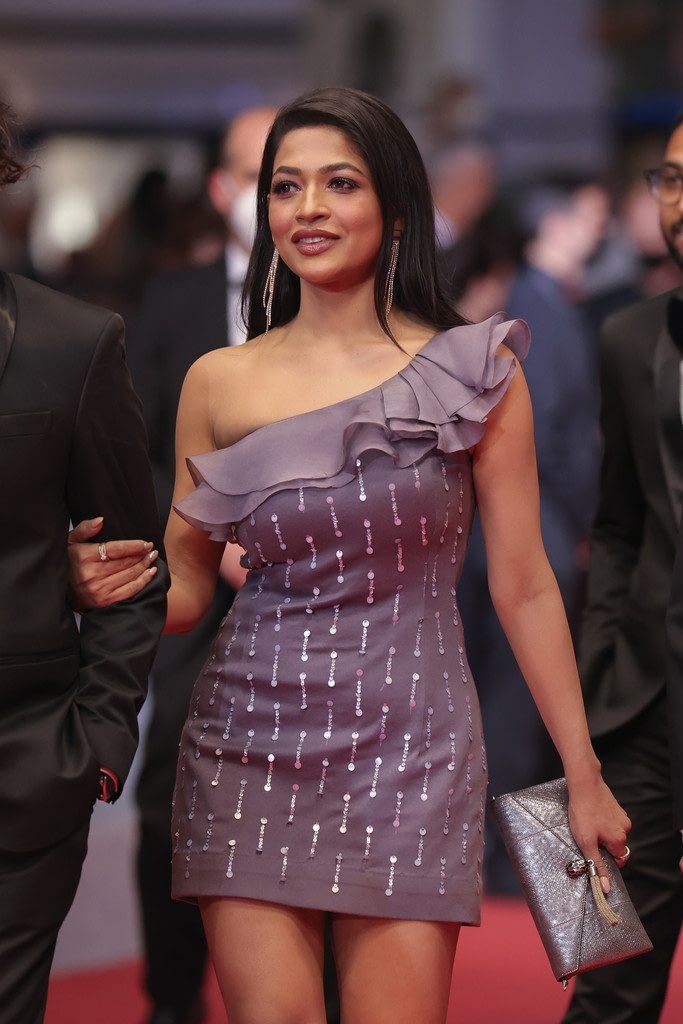The Bengali film ‘Rehana Maryam Noor’ has occurred in the authority determination of the world’s most lofty film celebration ‘Cannes’. It is coordinated by youthful maker Abdullah Mohammad Saad.
Who is Azmeri Haque Badhon?
Azmeri Haque Badhon learned at Bangladesh Medical College, Dhaka, and got a Bachelor of Dental Surgery from the school. Badhon was profoundly enthusiastic about the media business and in the end partook in a Beauty Pageant at a youthful age. She is likewise notable for her work in dramatization serials, for example, Choita Pagla, Shuvo Bibaho, Chand ful Omaboshsha, Rong, and Hijibiji Nothing. She likewise has an interest in dental practice. Badhon is generally occupied with TV plays nowadays.
Model and playwright Ajmeri Haque Bandhan has played the central role in the film. It is directed by young producer Abdullah Mohammad Saad.
This is the first such achievement of any Bangladeshi film. As a result, the poster will be adorned with a respectable Cannes logo.
‘Rehana Maryam Noor’ is in the Rigard branch of Am Sarte. This is important right after the Cannes competition section.
The list of selected films for the 64th edition of the Cannes Festival was announced on Thursday (June 3) at 3 pm Bangladesh time at the UGC Normandy Theater in Paris, France. The event was attended by General Delegate Thierry Fremo and President Pierre Lescour.
The press conference was broadcast live on Cannes’ official website, YouTube, Facebook, Twitter and Daily Motion accounts.
Ajmeri Haque Bandhan has played the lead role in ‘Rehana Maryam Noor’. Director Saad Kan is getting soaked in congratulations on social media soon after the festival organizers announced.
Its screenplay and editing are his. The story revolves around Rehana Maryam Noor, a teacher at a private medical college. Rehana lives a complex life as a mother, daughter, sister and teacher. One evening while leaving college, Rehana witnessed an unexpected event.
From then on, she started protesting against the incident by speaking out against a fellow teacher on behalf of a student and gradually became stubborn. And yet, his 8-year-old girl was blamed for acting mischievously at school.
In such a situation, Rehana continues to seek justice for the student and her child from outside the so-called rules.
Casting:
The film also stars Saberi Alam, Afia Zahin Zaima, Afia Tabassum Varna, Kazi Sami Hasan, Yasir Al Haq, Jopari Louis, Farzana Bithi, Jahed Chowdhury Mithu, Khushiyara Khushbu Oni, Avradit Chowdhury.
Earlier in 2016, ‘Live from Dhaka’ was the first story of Abdullah Mohammad Saad.
His second film ‘Rehana Maryam Noor’ has been made under the banner of Protocol and Metro Video. It is produced by Singaporean producer Jeremy Chua. The film is co-produced by Sensemakers Productions.
“Rehana” is Saad’s second component after his 2016 “Live from Dhaka”, what got a best chief honor at the Singapore International Film Festival and proceeded to show up in a few European celebrations. Like his presentation film, it is a person driven piece, controlled by a remarkably exceptional exhibition from entertainer and model Azmeri Haque Badhon.
Badhon plays the title character Rehana, a harsh, inflexible aide teacher in a clinical school who battles to offset her work with the requests of single nurturing and taking care of a sickly mother and a miserable sibling. The unstable equilibrium before long goes crazy when she coincidentally finds one of her understudies in tears and chooses to tenaciously seek after the male teacher who apparently attacked her.

The film mines the recognizable region of strong and unshakable ladies engaging shamefulness in a significantly misogynist climate. However, its ethically mindboggling hero is no simple boss for the women’s activist reason. Rehana is morally sound but ready to lie – and hurt those she holds dearest – in her over the top journey for reprisal.
That’s dangerous territory, but the film is careful to illustrate how Rehana is driven into it by a society that is all too frequently oblivious or complicit. Saad’s striking visual choices, from the harsh lighting to the probing, handheld camera that follows her every move, underscore her dilemma.
At the point when the film debuted at the Cannes Film Festival, it got huge recognition, as the crowd gave an overwhelming applause in appreciation. A crying Badhan was seen as the focal point of the applause, maybe for at long last having all her diligent effort pay off with the positive reaction.

